#ZHENYU LUO
Text

(by ZHENYU LUO)
2K notes
·
View notes
Text












Do I know what this drama is about? No.
Do I care what this drama is about? With a cast this pretty, also no.
#cdrama#shui long yin#luo yunxi#fang yilun#alen fang#xiao shunyao#ao ziyi#bao shangen#jeremy tsui#chen yao#riley wang#lin yun#xie binbin#jiang zhenyu#yang shize
208 notes
·
View notes
Text





Shûi Lóng Yín 水龍吟
Characters promo clip
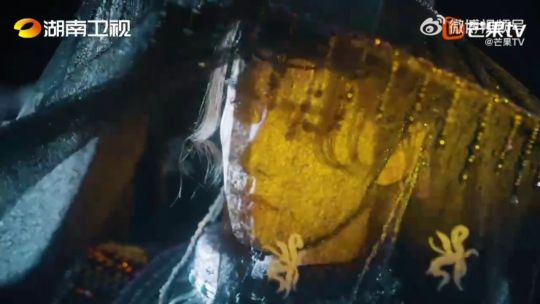

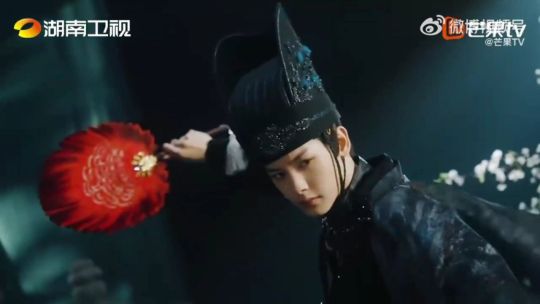


#shui long yin#cdrama#luo yunxi#fang yilun#ao ziyi#lin yun#bao shangen#chen yao#xu zhengxi#wang yilun#jiang zhenyu#yang shize#xiao shunyao#xie binbin
15 notes
·
View notes
Text


Photo by ZHENYU LUO
317 notes
·
View notes
Text

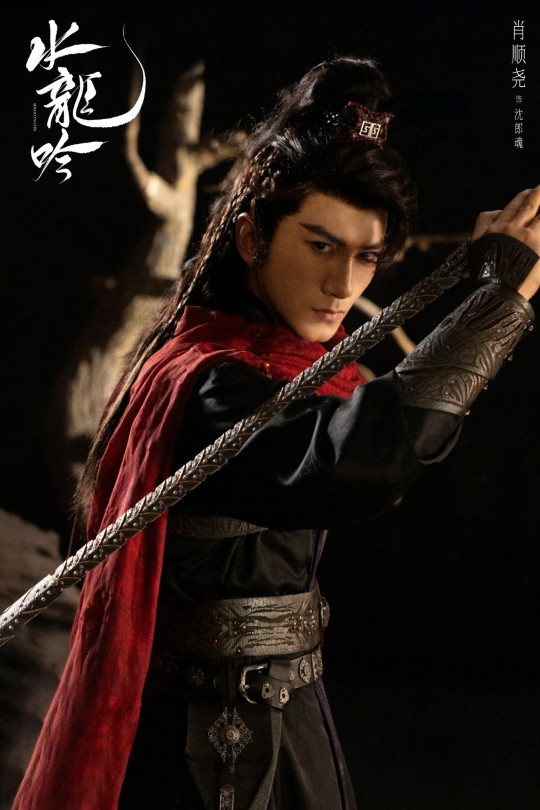








Shui Long Yin
Original novel: Teng Ping (author of Auspicious Lotus House -> which Mysterious Lotus Casebook was adapted from)
Principal Lead: Luo Yunxi
Male Leads: Xiao Shunyao, Ao Ziyi, Fang Yilun
Female Leads (Ranked by Actor's First Letter): Bao Shangen, Chen Yao, Lin Yun
Guest stars: Xu Zhengxi, Wang Yilun, Xie Binbin Jiang Zhenyu
Special guest: Yang Shize
[X]
25 notes
·
View notes
Text

AiMika Ship Aesthetic Collage 1
Photo Credits: Pixlr E Stock Images (From left to right) Alexandre Boucey, Leonard von Bibra, Phoebe Strafford, Zhenyu Luo, Wisconsinpictures, and Rae Wallis
#seraph of the end#owari no seraph#終わりのセラフ#mikaela hyakuya#aiko aihara#mikaela x aiko#aimika#ship aesthetic#ship aesthetic collage#fanmade collage#pixlr e
2 notes
·
View notes
Text
1900-Discovers the Dunhuang manuscripts


The Taoist monk Wang Yuanlu discovers the Dunhuang manuscripts, a cache of ancient texts that are of great historical and religious significance, in the Mogao Caves of Dunhuang, China.

The majority of surviving Dunhuang manuscripts were kept in a cave, the so-called Library Cave (Cave 17), which had been walled off sometime early in the 11th century. The documents in the cave were discovered by the Daoist monk Wang Yuanlu, who was interested in restoring the Mogao Caves, on June 25, 1900.


The majority of surviving Dunhuang manuscripts were kept in a cave, the so-called Library Cave (Cave 17), which had been walled off sometime early in the 11th century. The documents in the cave were discovered by the Daoist monk Wang Yuanlu, who was interested in restoring the Mogao Caves, on June 25, 1900.[4] In the next few years, Wang took some manuscripts to show to various officials who expressed varying level of interest, but in 1904 Wang re-sealed the cave following an order by the governor of Gansu concerned about the cost of transporting these documents. From 1907 onwards, Wang began to sell them to Western explorers, notably Aurel Stein and Paul Pelliot.


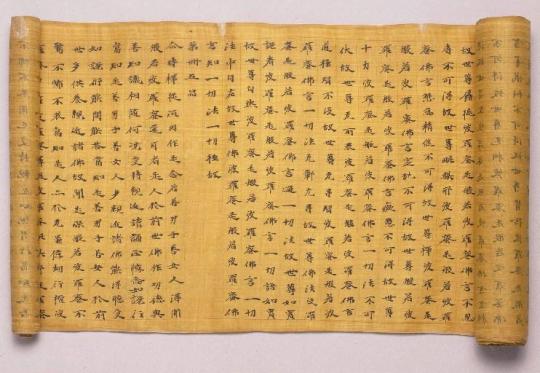
In addition to the manuscripts that he acquired from Wang, Pelliot also uncovered a large number of manuscripts and printed texts from Caves 464 and 465 (Pelliot's Caves 181 and 182) in the northern section of the site. These documents date to the Yuan dynasty (1271–1368), and are written in various languages, including Chinese, Tibetan, and Old Uyghur. Scholars in Beijing were alerted to the significance of the manuscripts after seeing samples of the documents in Pelliot's possession. Due to the efforts of the scholar and antiquarian Luo Zhenyu, most of the remaining Chinese manuscripts were taken to Beijing in 1910 and are now in the National Library of China. Several thousands of folios of Tibetan manuscripts were left in Dunhuang and are now located in several museums and libraries in the region.

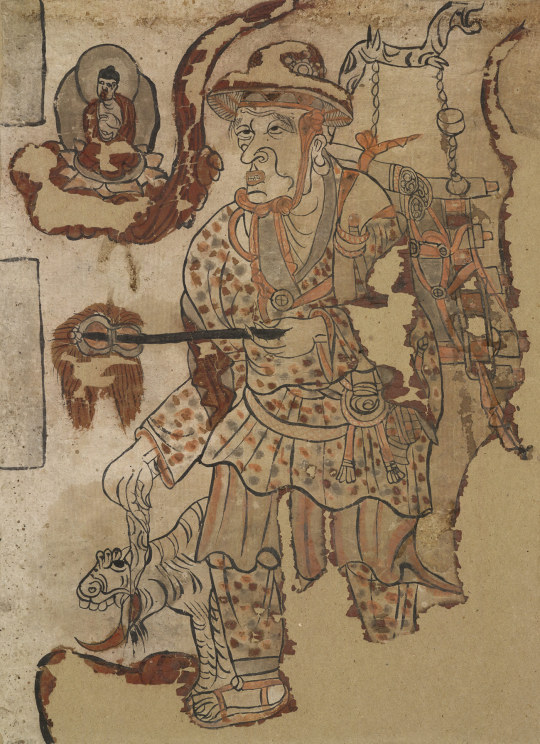

2 notes
·
View notes
Text

@ZHENYU LUO
See more like this.
#city#cityscape#travel#wanderlust#explore#nightlights#city lights#long exposure#photography#travel photography#highrise#urban aesthetic#roads#li_destinations#skyscrapers#modern architecture
8 notes
·
View notes
Photo

(by ZHENYU LUO)
1K notes
·
View notes
Photo

i used that penguin classics generator
the image is from Zhenyu Luo on unsplash. read “the hunger” on Inkitt & Wattpad - MikaHorror
msha.ke/mikahorror | Instagram: @mika.horror | TikTok: mikahorror
paypal.me/DiaWrites
cashapp: $mikamoonsong
Venmo: @mikahorror
#might use this w/o the obvious copyright image#occult fiction#cosmic horror#high fantasy#The Blackthorn Archives
7 notes
·
View notes
Text
Long Live the Little King
Status: Complete
Wordcount: 89k
Rating: Explicit
The war has ended. The ministry efforts to purge the remnants of the black magic related to the horcruxes leads to the discovery that Regulus Black was not dead but lost in time. Now, still in his 19-year old body, he is ready to take the mantle of the Lord Black and challenge the wizarding politics.
I am big fan of stories focusing on the Black family, this one did not sate my apatite. There are elements there are well executed like flashbacks of the past and the first person narration from Reg's point of view but they are outweighed by sub-par literary choices. Unfortunately there are multiple clichés that killed my joy from reading - forced proximity by sharing a house or wish fulfillment of Regulus being on a power trip to become the new benevolent dictator in the wizarding Britain to do away with crusty prejudice and stuffy traditions.
Making Regulus good looking, obscenely rich, magically powerful and devilishly intelligent makes for a boring protagonist. His inner monologues are tedious and his way of sweeping Hermione off her feet with grand gestures clashes with the repeated phrase that modern witches do not need knights in shining armors. Hermione in comparison to him looks like a plane Jane perpetuating the literary stereotype of dark and mysterious man falling for a girl just like any other.
With the explicit rating I was also expecting more romance and tension buildup. The romantic plot was unsatisfactory is how the relationship developed and awkward intimacy scenes that should have been steamy.
Regulus is a dream character to write - there are so many opportunities to introduce internal or external conflict and complex dilemmas. I did not buy into the story of coming back to life, easy adjustment and ploughing through to change the political scene - it all goes far to effortlessly.
4/10
Link to AO3: click

Image from Unsplash by ZHENYU LUO
#harry potter fanfic rec#hp fanfic#fanfic#harry potter#hp recs#fic rec#review#harry potter fanfiction#regulus black#first person narrative#POV regulus black#the most noble and ancient house of black#canon divergence#hermione granger#regmione#hermione granger/ regulus black
6 notes
·
View notes
Text
10 Ways to Make the Most of AI For Your Business - Technology Org
New Post has been published on https://thedigitalinsider.com/10-ways-to-make-the-most-of-ai-for-your-business-technology-org/
10 Ways to Make the Most of AI For Your Business - Technology Org
In today’s fast-paced business world, artificial intelligence (AI) is more than just a buzzword; it’s a transformative technology reshaping how companies operate. AI offers powerful tools for enhancing efficiency, understanding customer needs, and driving innovation. This article explores ten practical ways businesses can harness the power of AI, from improving customer service to personalizing marketing efforts.
An industrial robot – artistic rendering. Image credit: Zhenyu Luo via Unsplash, free license
One of the most immediate impacts of AI in business is seen in customer service. AI-powered chatbots and virtual assistants have revolutionized how companies interact with their customers. These tools can handle routine inquiries, freeing up human agents to tackle more complex issues. Additionally, AI systems can analyze customer feedback, identifying common issues and trends that can inform business strategy.
For example, chatbots like those used by e-commerce giants can handle thousands of queries simultaneously, providing instant responses that improve customer satisfaction. Moreover, these AI tools are becoming increasingly sophisticated, capable of understanding and responding to a wide range of customer emotions and queries.
Data is the lifeblood of modern business, but its sheer volume can be overwhelming. AI excels at processing large datasets, uncovering patterns and insights that might elude human analysts. These insights can inform everything from marketing strategies to product development. AI tools like machine learning algorithms can predict customer behavior, identify market trends, and even suggest areas for business expansion. For instance, a retail company might use AI to analyze purchase data, identifying which products are popular among different demographics and at different times of the year. This kind of analysis can help businesses tailor their offerings and stock levels more effectively.
For organizations looking to learn more about AI and leverage AI solutions, visiting https://www.sap.com/products/artificial-intelligence/what-is-artificial-intelligence.html will prove helpful.
AI also plays a crucial role in optimizing spply chain management. By analyzing data from various points in the supply chain, AI can help businesses predict demand, manage inventory levels, and identify potential bottlenecks before they cause problems. This results in more efficient operations and reduced costs. For example, an AI system might analyze weather patterns, historical sales data, and current inventory levels to recommend the optimal amount of stock to keep on hand. It helps prevent both overstocking and stockouts, ensuring that businesses can meet customer demand without tying up too much capital in unsold inventory.
Marketing is another area where AI is making a significant impact. By analyzing customer data, AI can help businesses create highly targeted marketing campaigns that resonate with individual consumers, which include personalized product recommendations, tailored email marketing, and dynamic website content. For instance, streaming services like Netflix use AI to recommend movies and TV shows based on a user’s viewing history, increasing engagement and customer satisfaction. Similarly, e-commerce sites use AI to show shoppers items they’re more likely to buy based on their browsing and purchase history.
AI is transforming human resource management by automating routine tasks and providing insights into employee performance and potential. AI-powered recruitment tools can scan through thousands of resumes, identifying candidates who best match the job requirements. It not only speeds up the hiring process but also helps eliminate unconscious bias. Additionally, AI systems can track employee performance and offer data-driven suggestions for training and development. For example, an AI system might analyze an employee’s work patterns and suggest specific courses or projects that could help them develop their skills and advance their career. This personalized approach to employee development can lead to a more engaged and efficient workforce.
Artificial Intelligence is revolutionizing the sales sector by predicting market trends and customer preferences. This predictive capability allows businesses to anticipate market demands, adjust their strategies accordingly, and identify new sales opportunities. AI-powered tools analyze past sales data, market conditions, and customer feedback to forecast future sales trends. It helps businesses stock the right products and target the right customers at the right time. For instance, a car dealership might use AI to predict which car models will be in demand in the coming months, allowing them to adjust their inventory and marketing strategies in advance.
Managing finances is a complex and critical task for any business. AI simplifies this by automating tasks such as budgeting, forecasting, and fraud detection. AI algorithms can analyze financial trends, track spending, and provide accurate financial forecasts, enabling businesses to make informed decisions about their financial strategies. In fraud detection, AI systems monitor transactions in real time, identifying and flagging suspicious activities that could indicate fraud. This proactive approach not only saves money but also protects the company’s reputation. For example, banks use AI to monitor credit card transactions, quickly detecting and responding to unusual spending patterns that could indicate fraud.
In an era where cyber threats are increasingly sophisticated, AI plays a pivotal role in enhancing a company’s security measures. AI systems monitor network traffic, detect anomalies, and immediately respond to potential threats. This continuous and automated monitoring means that AI can identify and neutralize threats much faster than human-operated systems. For example, AI in cybersecurity can detect patterns in data that might suggest a cyberattack, such as unusual login attempts or unexpected changes in network traffic. By responding swiftly to these threats, AI helps protect sensitive company data and maintain business continuity.
AI is not just about automating existing processes; it’s also a powerful driver of innovation and product development. By analyzing market trends, customer feedback, and current product performance, AI can identify opportunities for new products or improvements to existing ones. In industries like pharmaceuticals and automotive, AI accelerates the research and development process, reducing the time and cost of bringing new products to market. For instance, AI algorithms can simulate and analyze the performance of a new drug or car model in various scenarios, providing valuable insights that can guide the development process and improve the end product.
As AI becomes more integrated into business operations, the need for skilled professionals who can work with AI tools increases. Businesses can use AI itself to help train their workforce, offering personalized learning paths and identifying skill gaps. Online platforms and AI-based training programs can tailor learning content to each employee’s needs, making training more effective and efficient. For example, an AI training platform might analyze an employee’s performance and suggest specific courses or tutorials to improve their skills in areas like data analysis, AI maintenance, or AI ethics.
Conclusion
In conclusion, the integration of AI into various aspects of business operations is not just a trend; it’s a necessary evolution to stay competitive in today’s market. From enhancing customer service to innovating product development, AI offers a range of tools that can transform how businesses operate. By embracing AI, companies can improve efficiency, reduce costs, and provide better products and services. As AI continues to evolve, the possibilities for its application in business are only limited by our imagination.
#A.I. & Neural Networks news#ai#AI Ethics#ai training#AI-powered#Algorithms#Analysis#approach#Article#artificial#Artificial Intelligence#artificial intelligence (AI)#automotive#Behavior#Bias#budgeting#Business#business continuity#career#chatbots#Commerce#Companies#consumers#continuous#courses#credit card#customer data#customer service#cyber#Cyber Threats
0 notes
Text
By Zheping Huang Published March 13, 2017
We may earn a commission from links on this page.
According to Sigmund Freud, a human being’s psychosexual development has five stages: the oral, the anal, the phallic, the latent, and the genital. During the oral stage spanning from birth until the age of one, an infant satisfies its desires simply by putting all sorts of things into its mouth, whether it’s a pencil or its mother’s breast.
Most Chinese people have never developed beyond the oral stage of Freud’s theory and have the mental age of a six-month-old, argues psychologist Wu Zhihong. In his recently published book Nation of Giant Infants, Wu takes the psychological viewpoint to explain a wide range of social problems in China, including mama’s boys, tensions between mothers and daughter-in-laws, and suicides of left-behind rural kids. He claims that the “giant infant dream” is deeply rooted in the Chinese tradition of collectivism and filial piety.“Most Chinese people are infants in search of their mothers,” Wu writes.
“Nation of Giant Infants”“Nation of Giant Infants”
Image: Wu Zhihong/Weibo
The 42-year-old provides mental health counseling in major Chinese cities including Beijing, Shanghai, and Guangzhou, and is the author of a series of best-sellers on psychology. Prior to that, he wrote a column for the Guangzhou Daily newspaper. Published in December, his latest work Nation of Giant Infants has recently been removed from Chinese bookshops, drawing speculation among Chinese internet users that censors banned the book because it is offensive to Chinese beliefs and traditions.
The publisher, Zhejiang People’s Publishing House, pulled Wu’s book off shelves in both physical and online stores in China in mid-February. A staffer with the publisher said that the removal was due to bad print quality when asked by Quartz, but didn’t say when the book will become available again. An assistant to Wu said the publisher told her the same.
But that doesn’t explain why Luogic Talkshow, a popular online talkshow (link in Chinese) produced by former TV anchor Luo Zhenyu, scrapped an episode on Wu’s book. Some online discussions about the removal of the book have also been deleted (link in Chinese).
According to Wu, infants younger than six months live in symbiosis with their mothers. They can’t tell themselves apart from the outside world. They want everything to follow their own rules. And they don’t recognize anything between the two extremes of good and bad. Wu says these three characteristics summarize the majority of Chinese people.
For example, in an extended family in China, Wu writes, “Your business is my business, mine is also yours. I take too much responsibility for you, and you take too much for me. Otherwise you are a jerk, and I’ll feel guilty.” He notes in a recent interview (link in Chinese) that the phenomenon is reflected in a new hit Chinese dating show, where parents pick partners for their kids.
From a social perspective, Wu notes, Chinese people place a strong emphasis on collectivism because they can’t live on their own, both spiritually and materially speaking. They rely on guanxi, or personal connections, to get things done. Meanwhile, they prefer to let powerful figures such as their parents or the government make decisions for them.
Wu also challenges the Chinese government. He says mothers dominate Chinese families, while fathers are often missing in the role of a parent—just like Chinese rulers are absent in the role of government.
“Good fathers rarely exist, and more often they are bastards having desires,” he writes. “If Chinese families can have more powerful, good fathers, our politics will perhaps be more powerful and honest.”
0 notes


